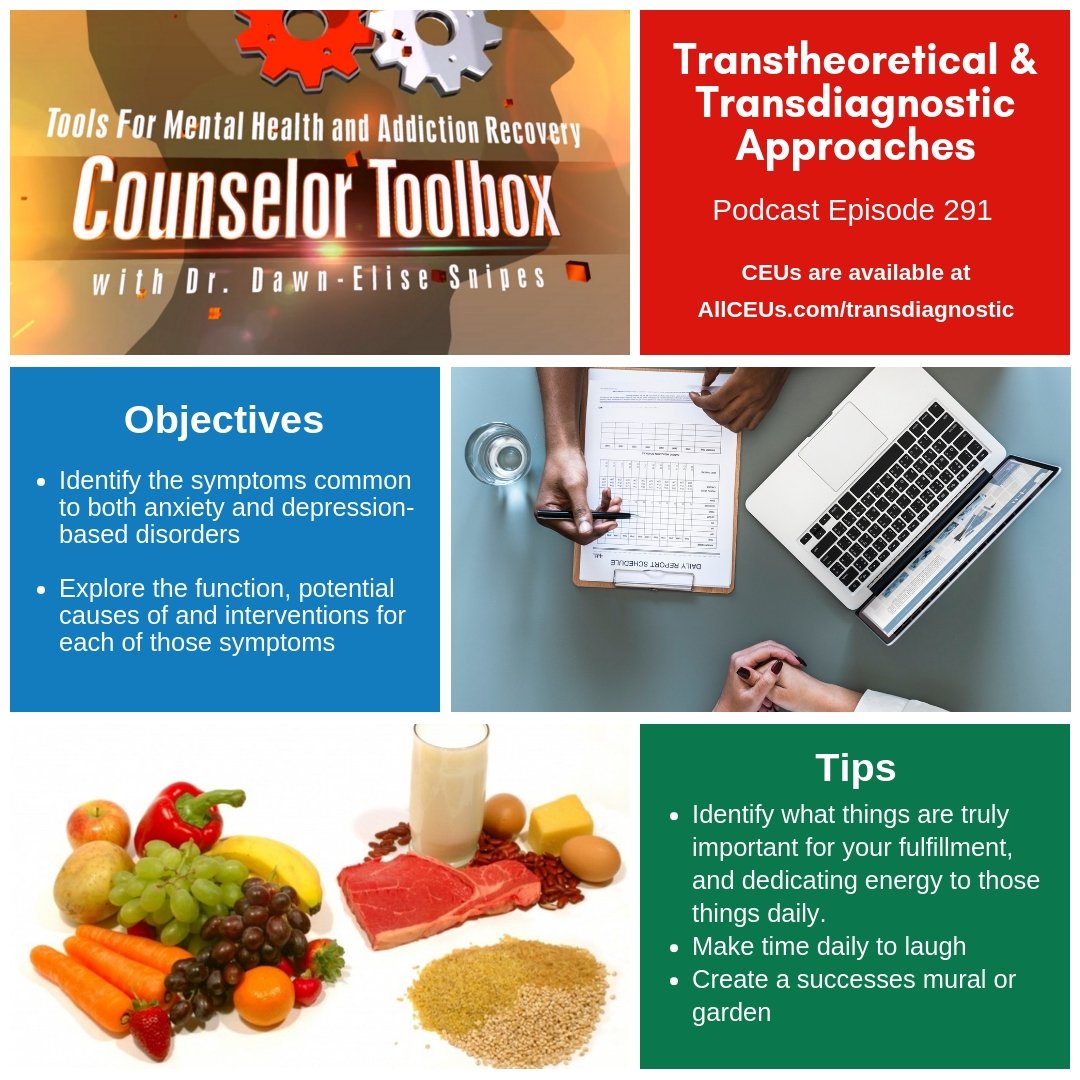
The transdiagnostic approach tells us that many symptoms are common to a variety of disorders. Take fatigue for example. It is a symptom of depression, generalized anxiety, medication or drug side effects, hypothyroid, sleep apnea, anemia and more. The same can be said about a stuffy nose and a cough. Those things can be caused by a virus, a bacterial infection or an allergy. Hives are another example. They can be caused by stress, bacterial infections, thyroid disease, or even exercise. To assume that the cause of a symptom is purely medical or purely psychological often leads to poor patient care.
The transtheoretical approach recognizes the importance of examining and addressing all potential causes of problems including physical health, emotional stressors, unhelpful thoughts, and unhealthy relationships and environments. By examining the WHOLE person and not getting stuck on treating a particular diagnosis we are freed up to really address the individual’s issues.
There are physical, environmental and psychological causes for all of the following symptoms:
- Lack of pleasure/apathy
- Irritability
- Edginess or restlessness
- Tiring easily; more fatigued than usual
- Impaired concentration and/or memory
- Increased muscle aches or soreness
- Difficulty sleeping (due to trouble falling asleep or staying asleep, restlessness at night, or unsatisfying sleep)
- Appetite changes
- Slowing of one’s movements or speech
These symptoms are common in the mental health diagnoses of depression, generalized anxiety, PTSD, social anxiety among others.
Physiologically they can be caused by sex or stress hormone imbalances, thyroid disease, heart problems, medication side effects, nutritional deficits, inadequate quality sleep/circadian rhythm disruption, autoimmune disorders, traumatic brain injury and other issues.
Environmentally, poor ergonomics, less daylight (seasonal affective disorder), a noisy environment that prevents relaxation or sleep and interpersonal discord (fighting/arguing) can also contribute to the development of these symptoms.
A good assessment starts by asking when each symptom started, what is different when that particular symptom is not present and what might have changed that triggered the symptom. In the next few articles I will present a bit of information about and possible interventions to consider for each symptom.
View the Counseling CEU course for this presentation.
This course is also included in our unlimited CEU packages.
